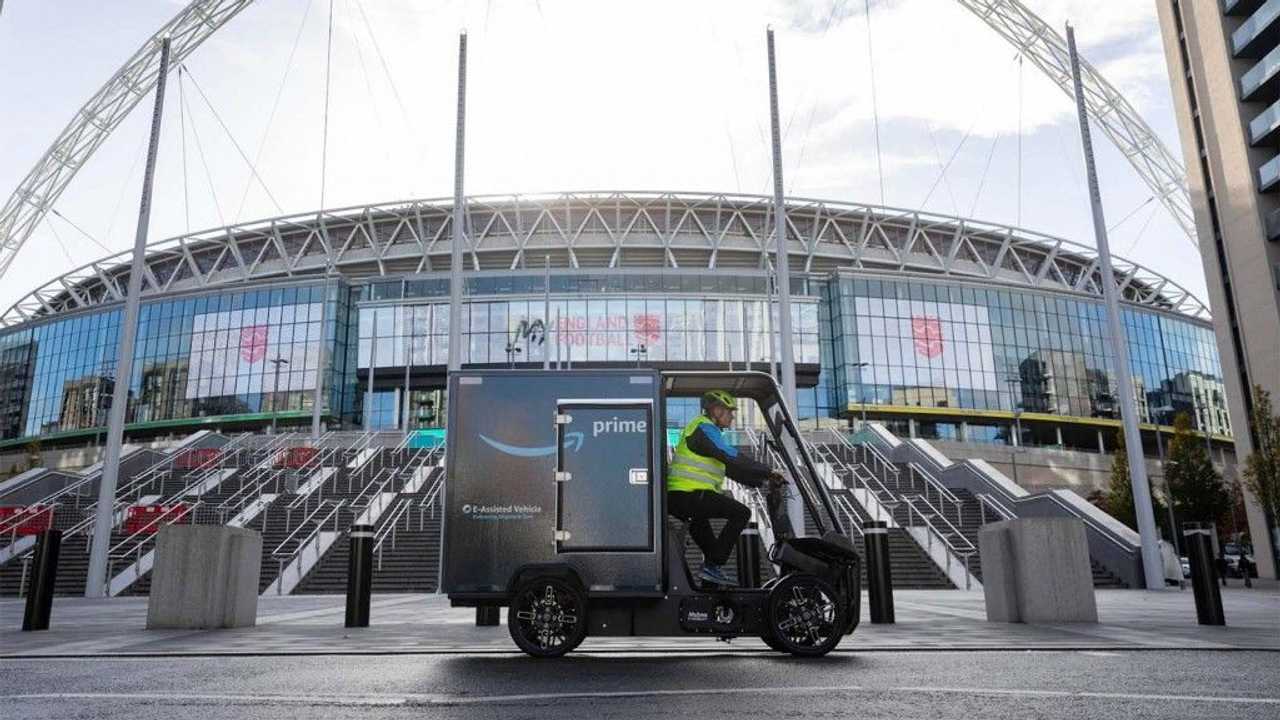
Insights
December 3, 2024
Spain has announced a €500 million investment to develop sustainable urban logistics hubs, aiming to reduce congestion and emissions in major cities.

Insights
December 3, 2024
Spain has announced a €500 million investment to develop sustainable urban logistics hubs, aiming to reduce congestion and emissions in major cities.
Spain is leading the charge toward greener cities and smarter logistics with a groundbreaking €500 million investment in sustainable urban logistics hubs. This initiative aims to revolutionize urban transportation, reduce congestion, cut emissions, and set an example for the global supply chain sector.
Spain has taken a pivotal step in reshaping the logistics and urban transport landscape with the announcement of a €500 million investment initiative aimed at developing sustainable urban logistics hubs. This ambitious plan not only aligns with the country’s broader environmental goals but also signals a strategic shift in how government and industry approach urban congestion and emissions. Such an initiative positions Spain as a frontrunner in integrating sustainability into logistics, addressing challenges faced by transportation and supply chain professionals worldwide while setting the standard for environmentally conscious urban development.
The investment is a timely response to the growing challenges posed by urbanization, rising e-commerce demands, and climate change. Cities across the globe are grappling with unprecedented congestion levels and deteriorating air quality as logistics networks struggle to keep pace with exponential growth. The logistics sector itself accounts for a significant percentage of global greenhouse gas emissions, driven in large part by last-mile delivery systems. For supply chain and transport experts, Spain’s direct intervention underscores the need to actively balance efficiency, innovation, and sustainability in an increasingly complex ecosystem.
At its core, Spain’s €500 million strategy aims to prioritize smart urban logistics hubs as the backbone for driving sustainable mobility and decarbonization in densely populated areas. These hubs will be strategically located to better manage urban deliveries, reduce traffic bottlenecks, and foster collaboration between municipalities, private enterprises, and technology providers. This planning ensures logistics hubs can support the anticipated growth of e-commerce activity while minimizing the environmental footprint. For executives and managers in the supply chain space, such synergy between stakeholders highlights the transformative potential of public-private partnerships when tackling systemic issues.
One of the standout components of the investment is its alignment with Spain’s broader climate objectives, including its commitment to reducing greenhouse gas emissions to meet European Union climate mandates. Through initiatives such as the European Green Deal, nations like Spain are being encouraged to lead the transition to low-carbon economies by fostering innovation in sectors like transportation and logistics. The government’s decision to channel a significant sum into urban logistics hubs suggests recognition of the critical role these sites play in cutting emissions at scale, particularly in last-mile delivery where a high concentration of fossil-fuel-powered vehicles currently prevail.
From a technological perspective, the development of sustainable logistics hubs provides an opportunity to deploy cutting-edge innovations such as electric vehicles, drone deliveries, and artificial intelligence-powered optimization. Electric vehicles, in particular, are expected to form the backbone of Spain’s sustainable logistics framework, offering a practical and scalable pathway to reducing emissions from traditional delivery fleets. Likewise, AI and machine learning are poised to revolutionize inventory and route management, enabling logistics hubs to more efficiently synchronize supply and demand in dynamic urban environments. For transportation specialists, these advancements reinforce the paramount role technology will play in driving next-gen logistics solutions.
Urban policy reforms will also complement the €500 million investment by providing the regulatory framework required to maximize the effectiveness of logistics hubs. Zoning laws and low-emission zones, for example, will incentivize businesses to adopt more eco-friendly practices while facilitating the integration of technologies like automated warehouses and smart traffic systems. Municipal governments, on the other hand, are likely to play a key role in fostering stakeholder collaboration to address nitty-gritty operational concerns, including site management, workforce allocation, and last-mile connectivity. Considerations like these illustrate the complexity of marrying sustainability goals with practical logistics execution— a balancing act many global cities will need to replicate.
The larger implications of Spain’s investment are also significant from a global perspective. As more countries observe Spain’s leadership in sustainable urban logistics, this investment could become an influential model for urban transformation elsewhere. With the World Bank projecting urban populations to rise to 6 billion by 2045, the need for countries to reimagine existing urban logistics frameworks is more urgent than ever. For companies operating regionally or internationally, adapting to increasingly green supply chain expectations will help future-proof operations amid tightening regulations and shifting consumer values.
Another notable aspect of Spain’s approach is its emphasis on collaboration, which ensures joint ownership of the initiative’s outcomes by both the public and private sectors. Public-private partnerships bring much-needed financing and innovation but also facilitate scalable, cross-sectoral solutions to common issues like congestion and inefficiencies. Logistics executives should take note of the ways such partnerships enable industry players to pool resources, share knowledge, and coordinate on sustainability benchmarks that deliver measurable outcomes.
E-commerce businesses, meanwhile, find themselves as important beneficiaries—and key contributors—to Spain’s vision for sustainable logistics hubs. With online purchases growing year-on-year, the shift to more localized logistics hubs directly addresses common pain points, from mitigating urban bottlenecks to enabling faster, greener deliveries. Forward-thinking businesses that align with Spain’s sustainable logistics agenda could gain a significant edge in capturing a fast-evolving, environmentally minded consumer base.
For mid-sized cities in Spain, this €500-million investment is especially promising. While major urban centers like Madrid and Barcelona are natural focal points, applying these tools at tier-two and tier-three cities could unlock tremendous local-level value. Regional municipalities face unique logistics challenges, and Spain’s decision to scale its sustainability initiatives nationwide may provide faster outcomes tailored to specific urban contexts. For executives looking to replicate Spain’s model in other countries, this scalable approach to urban logistics planning offers a powerful takeaway.
Despite its clear advantages, the journey to construct sustainable urban logistics hubs is not without challenges. Financial allocations at this scale require meticulous oversight, while implementation timelines must finely balance long-term goals with immediate urban mobility needs. Moreover, aligning diverse stakeholders—from tech providers to local governments—requires clear communication and shared accountability mechanisms. For managers and strategists overseeing large-scale projects, Spain’s example is a reminder of the need to integrate operational and environmental objectives seamlessly to maximize delivery timelines and outcomes.
Data-driven insights will also be critical for reaping the full benefits of Spain’s logistics hub investment. Urban data platforms gathering real-time information on traffic flows, carbon emissions, and delivery patterns will be essential to measure the dynamic impacts of sustainable logistics hubs. These insights won’t merely serve as benchmarks; they’ll fuel continual refinements and empower leaders to make proactive adjustments in the face of evolving challenges. This underscores the importance of integrating IoT-enabled platforms into urban logistics strategies to ensure scalability and precision.
As demand grows for urban transformation and resource optimization, Spain’s ambitious action plan couldn’t be more relevant to global logistics trends. Its €500 million commitment is not just a local initiative but a glimpse into the future of sustainable city-building, encouraging the logistics industry to redefine what truly efficient supply chain networks look like. For supply chain experts, this marks an opportunity to better integrate sustainability into delivery systems—not as an afterthought but as a cornerstone of modern operations.
Ultimately, Spain’s investment serves as a clarion call to transportation experts, supply chain managers, and urban policymakers alike. It exemplifies the power of targeted, forward-thinking investment in addressing some of today’s most pressing challenges, from rising emissions to inefficient urban networks. Executives and stakeholders reading this should engage proactively with similar sustainability initiatives to ensure the logistics sector continues to innovate and thrive while meeting its responsibilities to the planet and society at large.
Spain’s bold €500 million venture reinforces a simple but powerful truth: sustainable logistics hubs are no longer optional—they are essential if we are to achieve dynamic, efficient, and environmentally viable urban systems. As the world watches Spain’s journey, the broader takeaway is clear: an investment in sustainable mobility is an investment in the future for cities and industries everywhere.
Spain has taken a pivotal step in reshaping the logistics and urban transport landscape with the announcement of a €500 million investment initiative aimed at developing sustainable urban logistics hubs. This ambitious plan not only aligns with the country’s broader environmental goals but also signals a strategic shift in how government and industry approach urban congestion and emissions. Such an initiative positions Spain as a frontrunner in integrating sustainability into logistics, addressing challenges faced by transportation and supply chain professionals worldwide while setting the standard for environmentally conscious urban development.
The investment is a timely response to the growing challenges posed by urbanization, rising e-commerce demands, and climate change. Cities across the globe are grappling with unprecedented congestion levels and deteriorating air quality as logistics networks struggle to keep pace with exponential growth. The logistics sector itself accounts for a significant percentage of global greenhouse gas emissions, driven in large part by last-mile delivery systems. For supply chain and transport experts, Spain’s direct intervention underscores the need to actively balance efficiency, innovation, and sustainability in an increasingly complex ecosystem.
At its core, Spain’s €500 million strategy aims to prioritize smart urban logistics hubs as the backbone for driving sustainable mobility and decarbonization in densely populated areas. These hubs will be strategically located to better manage urban deliveries, reduce traffic bottlenecks, and foster collaboration between municipalities, private enterprises, and technology providers. This planning ensures logistics hubs can support the anticipated growth of e-commerce activity while minimizing the environmental footprint. For executives and managers in the supply chain space, such synergy between stakeholders highlights the transformative potential of public-private partnerships when tackling systemic issues.
One of the standout components of the investment is its alignment with Spain’s broader climate objectives, including its commitment to reducing greenhouse gas emissions to meet European Union climate mandates. Through initiatives such as the European Green Deal, nations like Spain are being encouraged to lead the transition to low-carbon economies by fostering innovation in sectors like transportation and logistics. The government’s decision to channel a significant sum into urban logistics hubs suggests recognition of the critical role these sites play in cutting emissions at scale, particularly in last-mile delivery where a high concentration of fossil-fuel-powered vehicles currently prevail.
From a technological perspective, the development of sustainable logistics hubs provides an opportunity to deploy cutting-edge innovations such as electric vehicles, drone deliveries, and artificial intelligence-powered optimization. Electric vehicles, in particular, are expected to form the backbone of Spain’s sustainable logistics framework, offering a practical and scalable pathway to reducing emissions from traditional delivery fleets. Likewise, AI and machine learning are poised to revolutionize inventory and route management, enabling logistics hubs to more efficiently synchronize supply and demand in dynamic urban environments. For transportation specialists, these advancements reinforce the paramount role technology will play in driving next-gen logistics solutions.
Urban policy reforms will also complement the €500 million investment by providing the regulatory framework required to maximize the effectiveness of logistics hubs. Zoning laws and low-emission zones, for example, will incentivize businesses to adopt more eco-friendly practices while facilitating the integration of technologies like automated warehouses and smart traffic systems. Municipal governments, on the other hand, are likely to play a key role in fostering stakeholder collaboration to address nitty-gritty operational concerns, including site management, workforce allocation, and last-mile connectivity. Considerations like these illustrate the complexity of marrying sustainability goals with practical logistics execution— a balancing act many global cities will need to replicate.
The larger implications of Spain’s investment are also significant from a global perspective. As more countries observe Spain’s leadership in sustainable urban logistics, this investment could become an influential model for urban transformation elsewhere. With the World Bank projecting urban populations to rise to 6 billion by 2045, the need for countries to reimagine existing urban logistics frameworks is more urgent than ever. For companies operating regionally or internationally, adapting to increasingly green supply chain expectations will help future-proof operations amid tightening regulations and shifting consumer values.
Another notable aspect of Spain’s approach is its emphasis on collaboration, which ensures joint ownership of the initiative’s outcomes by both the public and private sectors. Public-private partnerships bring much-needed financing and innovation but also facilitate scalable, cross-sectoral solutions to common issues like congestion and inefficiencies. Logistics executives should take note of the ways such partnerships enable industry players to pool resources, share knowledge, and coordinate on sustainability benchmarks that deliver measurable outcomes.
E-commerce businesses, meanwhile, find themselves as important beneficiaries—and key contributors—to Spain’s vision for sustainable logistics hubs. With online purchases growing year-on-year, the shift to more localized logistics hubs directly addresses common pain points, from mitigating urban bottlenecks to enabling faster, greener deliveries. Forward-thinking businesses that align with Spain’s sustainable logistics agenda could gain a significant edge in capturing a fast-evolving, environmentally minded consumer base.
For mid-sized cities in Spain, this €500-million investment is especially promising. While major urban centers like Madrid and Barcelona are natural focal points, applying these tools at tier-two and tier-three cities could unlock tremendous local-level value. Regional municipalities face unique logistics challenges, and Spain’s decision to scale its sustainability initiatives nationwide may provide faster outcomes tailored to specific urban contexts. For executives looking to replicate Spain’s model in other countries, this scalable approach to urban logistics planning offers a powerful takeaway.
Despite its clear advantages, the journey to construct sustainable urban logistics hubs is not without challenges. Financial allocations at this scale require meticulous oversight, while implementation timelines must finely balance long-term goals with immediate urban mobility needs. Moreover, aligning diverse stakeholders—from tech providers to local governments—requires clear communication and shared accountability mechanisms. For managers and strategists overseeing large-scale projects, Spain’s example is a reminder of the need to integrate operational and environmental objectives seamlessly to maximize delivery timelines and outcomes.
Data-driven insights will also be critical for reaping the full benefits of Spain’s logistics hub investment. Urban data platforms gathering real-time information on traffic flows, carbon emissions, and delivery patterns will be essential to measure the dynamic impacts of sustainable logistics hubs. These insights won’t merely serve as benchmarks; they’ll fuel continual refinements and empower leaders to make proactive adjustments in the face of evolving challenges. This underscores the importance of integrating IoT-enabled platforms into urban logistics strategies to ensure scalability and precision.
As demand grows for urban transformation and resource optimization, Spain’s ambitious action plan couldn’t be more relevant to global logistics trends. Its €500 million commitment is not just a local initiative but a glimpse into the future of sustainable city-building, encouraging the logistics industry to redefine what truly efficient supply chain networks look like. For supply chain experts, this marks an opportunity to better integrate sustainability into delivery systems—not as an afterthought but as a cornerstone of modern operations.
Ultimately, Spain’s investment serves as a clarion call to transportation experts, supply chain managers, and urban policymakers alike. It exemplifies the power of targeted, forward-thinking investment in addressing some of today’s most pressing challenges, from rising emissions to inefficient urban networks. Executives and stakeholders reading this should engage proactively with similar sustainability initiatives to ensure the logistics sector continues to innovate and thrive while meeting its responsibilities to the planet and society at large.
Spain’s bold €500 million venture reinforces a simple but powerful truth: sustainable logistics hubs are no longer optional—they are essential if we are to achieve dynamic, efficient, and environmentally viable urban systems. As the world watches Spain’s journey, the broader takeaway is clear: an investment in sustainable mobility is an investment in the future for cities and industries everywhere.
Spain is leading the charge toward greener cities and smarter logistics with a groundbreaking €500 million investment in sustainable urban logistics hubs. This initiative aims to revolutionize urban transportation, reduce congestion, cut emissions, and set an example for the global supply chain sector.
Spain has taken a pivotal step in reshaping the logistics and urban transport landscape with the announcement of a €500 million investment initiative aimed at developing sustainable urban logistics hubs. This ambitious plan not only aligns with the country’s broader environmental goals but also signals a strategic shift in how government and industry approach urban congestion and emissions. Such an initiative positions Spain as a frontrunner in integrating sustainability into logistics, addressing challenges faced by transportation and supply chain professionals worldwide while setting the standard for environmentally conscious urban development.
The investment is a timely response to the growing challenges posed by urbanization, rising e-commerce demands, and climate change. Cities across the globe are grappling with unprecedented congestion levels and deteriorating air quality as logistics networks struggle to keep pace with exponential growth. The logistics sector itself accounts for a significant percentage of global greenhouse gas emissions, driven in large part by last-mile delivery systems. For supply chain and transport experts, Spain’s direct intervention underscores the need to actively balance efficiency, innovation, and sustainability in an increasingly complex ecosystem.
At its core, Spain’s €500 million strategy aims to prioritize smart urban logistics hubs as the backbone for driving sustainable mobility and decarbonization in densely populated areas. These hubs will be strategically located to better manage urban deliveries, reduce traffic bottlenecks, and foster collaboration between municipalities, private enterprises, and technology providers. This planning ensures logistics hubs can support the anticipated growth of e-commerce activity while minimizing the environmental footprint. For executives and managers in the supply chain space, such synergy between stakeholders highlights the transformative potential of public-private partnerships when tackling systemic issues.
One of the standout components of the investment is its alignment with Spain’s broader climate objectives, including its commitment to reducing greenhouse gas emissions to meet European Union climate mandates. Through initiatives such as the European Green Deal, nations like Spain are being encouraged to lead the transition to low-carbon economies by fostering innovation in sectors like transportation and logistics. The government’s decision to channel a significant sum into urban logistics hubs suggests recognition of the critical role these sites play in cutting emissions at scale, particularly in last-mile delivery where a high concentration of fossil-fuel-powered vehicles currently prevail.
From a technological perspective, the development of sustainable logistics hubs provides an opportunity to deploy cutting-edge innovations such as electric vehicles, drone deliveries, and artificial intelligence-powered optimization. Electric vehicles, in particular, are expected to form the backbone of Spain’s sustainable logistics framework, offering a practical and scalable pathway to reducing emissions from traditional delivery fleets. Likewise, AI and machine learning are poised to revolutionize inventory and route management, enabling logistics hubs to more efficiently synchronize supply and demand in dynamic urban environments. For transportation specialists, these advancements reinforce the paramount role technology will play in driving next-gen logistics solutions.
Urban policy reforms will also complement the €500 million investment by providing the regulatory framework required to maximize the effectiveness of logistics hubs. Zoning laws and low-emission zones, for example, will incentivize businesses to adopt more eco-friendly practices while facilitating the integration of technologies like automated warehouses and smart traffic systems. Municipal governments, on the other hand, are likely to play a key role in fostering stakeholder collaboration to address nitty-gritty operational concerns, including site management, workforce allocation, and last-mile connectivity. Considerations like these illustrate the complexity of marrying sustainability goals with practical logistics execution— a balancing act many global cities will need to replicate.
The larger implications of Spain’s investment are also significant from a global perspective. As more countries observe Spain’s leadership in sustainable urban logistics, this investment could become an influential model for urban transformation elsewhere. With the World Bank projecting urban populations to rise to 6 billion by 2045, the need for countries to reimagine existing urban logistics frameworks is more urgent than ever. For companies operating regionally or internationally, adapting to increasingly green supply chain expectations will help future-proof operations amid tightening regulations and shifting consumer values.
Another notable aspect of Spain’s approach is its emphasis on collaboration, which ensures joint ownership of the initiative’s outcomes by both the public and private sectors. Public-private partnerships bring much-needed financing and innovation but also facilitate scalable, cross-sectoral solutions to common issues like congestion and inefficiencies. Logistics executives should take note of the ways such partnerships enable industry players to pool resources, share knowledge, and coordinate on sustainability benchmarks that deliver measurable outcomes.
E-commerce businesses, meanwhile, find themselves as important beneficiaries—and key contributors—to Spain’s vision for sustainable logistics hubs. With online purchases growing year-on-year, the shift to more localized logistics hubs directly addresses common pain points, from mitigating urban bottlenecks to enabling faster, greener deliveries. Forward-thinking businesses that align with Spain’s sustainable logistics agenda could gain a significant edge in capturing a fast-evolving, environmentally minded consumer base.
For mid-sized cities in Spain, this €500-million investment is especially promising. While major urban centers like Madrid and Barcelona are natural focal points, applying these tools at tier-two and tier-three cities could unlock tremendous local-level value. Regional municipalities face unique logistics challenges, and Spain’s decision to scale its sustainability initiatives nationwide may provide faster outcomes tailored to specific urban contexts. For executives looking to replicate Spain’s model in other countries, this scalable approach to urban logistics planning offers a powerful takeaway.
Despite its clear advantages, the journey to construct sustainable urban logistics hubs is not without challenges. Financial allocations at this scale require meticulous oversight, while implementation timelines must finely balance long-term goals with immediate urban mobility needs. Moreover, aligning diverse stakeholders—from tech providers to local governments—requires clear communication and shared accountability mechanisms. For managers and strategists overseeing large-scale projects, Spain’s example is a reminder of the need to integrate operational and environmental objectives seamlessly to maximize delivery timelines and outcomes.
Data-driven insights will also be critical for reaping the full benefits of Spain’s logistics hub investment. Urban data platforms gathering real-time information on traffic flows, carbon emissions, and delivery patterns will be essential to measure the dynamic impacts of sustainable logistics hubs. These insights won’t merely serve as benchmarks; they’ll fuel continual refinements and empower leaders to make proactive adjustments in the face of evolving challenges. This underscores the importance of integrating IoT-enabled platforms into urban logistics strategies to ensure scalability and precision.
As demand grows for urban transformation and resource optimization, Spain’s ambitious action plan couldn’t be more relevant to global logistics trends. Its €500 million commitment is not just a local initiative but a glimpse into the future of sustainable city-building, encouraging the logistics industry to redefine what truly efficient supply chain networks look like. For supply chain experts, this marks an opportunity to better integrate sustainability into delivery systems—not as an afterthought but as a cornerstone of modern operations.
Ultimately, Spain’s investment serves as a clarion call to transportation experts, supply chain managers, and urban policymakers alike. It exemplifies the power of targeted, forward-thinking investment in addressing some of today’s most pressing challenges, from rising emissions to inefficient urban networks. Executives and stakeholders reading this should engage proactively with similar sustainability initiatives to ensure the logistics sector continues to innovate and thrive while meeting its responsibilities to the planet and society at large.
Spain’s bold €500 million venture reinforces a simple but powerful truth: sustainable logistics hubs are no longer optional—they are essential if we are to achieve dynamic, efficient, and environmentally viable urban systems. As the world watches Spain’s journey, the broader takeaway is clear: an investment in sustainable mobility is an investment in the future for cities and industries everywhere.
Other Blogs
Other Blogs
Check our other project Blogs with useful insight and information for your businesses
Other Blogs
Other Blogs
Check our other project Blogs with useful insight and information for your businesses
Other Blogs
Other Blogs
Check our other project Blogs with useful insight and information for your businesses


